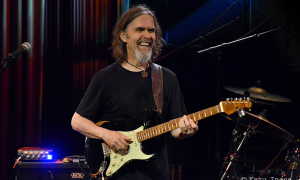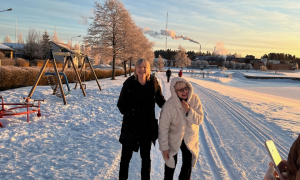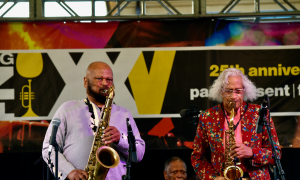Home » Jazz Articles » SoCal Jazz » John Beasley: Master of All Trades
John Beasley: Master of All Trades
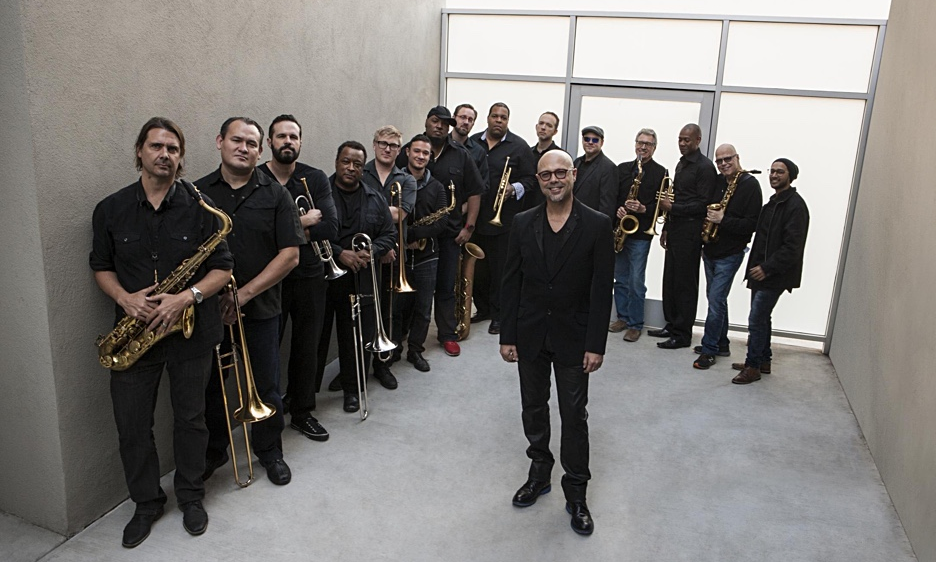
Monk's music will always be with us because we have finally caught up to his genius. Back when he was writing and playing people weren't open to where he was taking them.
—John Beasley
John Beasley
pianoTaking on many facets came naturally to Beasley as he learned to play the drums (starting on pots, pans, and luggage), trumpet, oboe, piano, and saxophone in his youth. At age twenty he had his first big professional gig at Carnegie Hall with

Hubert Laws
woodwindsb.1939

John Patitucci
bassb.1959

Joey Heredia
drums
Freddie Hubbard
trumpet1938 - 2008

Miles Davis
trumpet1926 - 1991
Over the ensuing years he has refined his craft and reached the ultimate successes referenced at the outset. Along the way playing with a cross section of musicians including

Lee Ritenour
guitarb.1952

James Brown
vocals1933 - 2006

Steely Dan
band / ensemble / orchestrab.1972

Bobby Hutcherson
vibraphone1941 - 2016

Dianne Reeves
vocalsb.1956

Wallace Roney
trumpet1960 - 2020

Ron Carter
bassb.1937

Chaka Khan
vocals
Mike Stern
guitarb.1953

Kenny Garrett
saxophone, altob.1960

Sergio Mendes
piano1941 - 2024
All About Jazz: Top of mind is your MONK'estra Big Band. What drew your attention to the music of

Thelonious Monk
piano1917 - 1982
John Beasley: I've been listening to Monk since I was a kid. I was drawn to the music because his writing displays so much audacity, surprises, grooves, and it swings so hard. After all these years, I am still drawn to his sense of boldness and freedom. So, I took my years of writing, arranging, and playing jazz, Brazilian, Cuban, hip-hop, classical, pop, and film music, and then wrote new arrangements for big band. I was surprised how organically my arrangements can be played and interpreted by the musicians after I wrote the charts. We recorded two albums and called the band and albums MONK'estra, Volume 1 and Volume 2. These recordings earned four Grammy nominations and the band has played over thirty-five concerts around the globe.
AAJ: I hear a freshness of interpretations in the music that represents today's culture and sound, along with charts being punched in the mouth. Were the arrangements adroitly implemented as you proceeded with the project, or did you pretty much already have it all in your head going in?
JB: I wrote some of the music while walking the streets of New York, Amsterdam, Tokyo, and wherever I am. When it's playing in my head, I whip out my iPhone and sing in what's on my head, then go home and write it out.
AAJ: What do you think the iconic Monk would have to say about these arrangements and the resurgence of his music in general?
JB: Thelonious Monk's son, T.S., saw MONK'estra a few times. After our Portland concert, he said "You're doing what my dad wanted people to do with his music, play it like you want to hear it." Monk's music will always be with us, because we have finally started to catch up to his genius. Back when he was writing and playing, people weren't open to where he was taking them. He was evolving jazz but its human nature to want what you are familiar with.
AAJ: I had the pleasure of seeing and hearing you with the

Peter Erskine
drumsb.1954
JB: I met Peter at a

Stan Kenton
piano1911 - 1979
AAJ: The variance in your upcoming schedule duly represents the many areas of expertise and aspects of your musical career. Which entity do you find most challenging? Do you find any to be more fun and rewarding than others?
JB: Each role is a different skill set but relies on a sound musical judgment. It's like a pasta menu. I like all the shapes of pasta and the different sauces. I can't choose because each role is creative, exciting, and fulfilling, especially when you are working with very talented people. This month, Jazz Appreciation Month, I will be playing all roles and loving every minute. MONK'estra at the CA Jazz Foundation fundraiser, supporting musicians in need of medical and financial assistance. My quartet, with

Bennie Maupin
woodwindsb.1940

Mike Gurrola
bass
Anthony Fung
drums
Billy Higgins
drums1936 - 2001

Maria Mendes
vocals
Eric Revis
bassb.1967

Adonis Rose
drums
Gregoire Maret
harmonicab.1975

Somi
vocals
Ivan Lins
piano and vocalsb.1945
AAJ: Along the way there have been Grammy and Emmy nominations. The latter for your work at the White House. How do you approach a project of that scope and magnitude?
JB: It's a jigsaw puzzle and even blue skies have clouds, but they disperse. The most wonderful thing is that we are spreading the music of jazz, the music of freedom, of diversity, of community, of listening with a call and response, and of acceptance.
AAJ: What is this new show that you have on Sirius XM radio?
JB: Long-time and respected jazz radio host, Mark Ruffin, has been playing my MONK'estra albums these past few years. This led to him offering me a show on arranging. We called it Flipped. It will start April 5th and air every Friday 5-7pmEST, with a repeat on Saturdays from 6-8pmEST. This will run every week in April, which again is Jazz Appreciation Month. I play popular songs and show how jazz musicians creatively interpret them in different ways. "My Favorite Things" from the file The Sound of Music and

John Coltrane
saxophone1926 - 1967

Jacob Collier
vocalsb.1994

Stevie Wonder
vocalsb.1950

Herbie Hancock
pianob.1940
AAJ: Tell us about your formative years. What was it like growing up in a musical family?
JB: I'm a third-generation musician. My grandfather played in territory dance bands and was a jazz educator. My mom, Lida Beasley, was a brass instrumentalist and, also a music educator and conducted junior and high school bands and orchestras. She had me fill in whatever sections were weak in her bands, so it helped me to appreciate these instruments and it has helped me be a better writer. That's also why I use a lot of brass instruments in MONK'estra. My dad, Rule Beasley, was a professor of music at North Texas and Santa Monica College. He played bassoon and piano and was composer. I run my musical ideas by him. Last year, I won a composition international competition hosted by an Austrian music university called JAM Music Lab, for a jazz symphonic piece. It was the first time I had to write for a 75-piece orchestra. My dad always helps me out of writing jams.
AAJ: Your work as a clinician on a host of workshops is well documented. Perhaps you could talk about these educational workshops and how rewarding they are.
JB: There's a saying, "The day you plant the seed is not the day you eat the fruit." So, when I'm in a classroom I think about how I'm planting seeds with music students. You see how a plant grows from the seed into a tree fed with plenty of sunshine, pollination from bees, and precious water into an abundance of fruit. As a teacher, students force you to think through things with their questions or ideas. So, they feed you too.
AAJ: I'm sure you are looking forward to International Jazz Day later this month and that there have been many great moments over the past few years at the Jazz Days. What is especially unique and exciting about this occasion?
JB: I've been lucky to be the music director for International Jazz Day global concerts organized by the former Thelonious Monk Jazz Institute, now called the Herbie Hancock Institute of Jazz, since 2012, the inaugural year. Each year there are great moments because of the international roster of artists, some meeting for the first time to perform together. As the musical director, I decide on the combination of artists and arrange all the music. The delight is to see how musicians influenced by their culture, but that studied jazz, the original American music, perform, improvise, and interpret standards. There are so many awe-inspiring surprises. The venues are breathtaking because they are usually UNESCO heritage sites in global cities such as Hagia Sophia (537AD), the Osaka Castel Park (1931), or the White House (1792). This year the event will be at the renowned Arts Center Melbourne. This year the roster of artists include

Chico Pinheiro
guitarA Bu
piano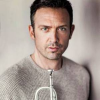
Till Bronner
trumpetb.1971

Eli Degibri
saxophone, tenorb.1978
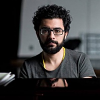
Tarek Yamani
piano
Antonio Sanchez
drumsb.1971

Tineke Postma
saxophone, altob.1978

Igor Butman
saxophone, tenorb.1961

Mark Nightingale
tromboneb.1967

Dee Dee Bridgewater
vocalsb.1950

Kurt Elling
vocalsb.1967

Ledisi
vocalsb.1972

Eric Reed
pianob.1970

Somi
vocals
James Morrison
multi-instrumentalistb.1962
AAJ: Lastly, and just for fun, apparently once upon a time there was a band you were in with

Vinnie Colaiuta
drumsb.1956
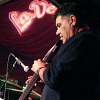
Steve Tavaglione
woodwindsJB: We still carry that 'audio mind' sensibility. We are life-long friends and know that those days were surely formative years. We were known for improvising whole sets which was unusual in that time in the LA fusion era. We learned how to be free. Free from judgment, jazz police, standards, and commercialization. We played for ourselves. Yes, there's a bootleg recording out there that I have. We should have a reunion one day soon.
AAJ: Indeed, you should. That would be outstanding. I look forward to that day and am most appreciative of your time today.
Tags
SoCal Jazz
Jim Worsley
United States
California
Los Angeles
John Beasley
Hubert Laws
John Patitucci
Joey Heredia
Freddie Hubbard
Miles Davis
Lee Ritenour
James Brown
steely dan
Bobby Hutcherson
Dianna Reeves
Wallace Roney
Ron Carter
Chaka Khan
Mike Stern
Kenny Garrett
Sergio Mendes
Thelonious Monk
Peter Erskine
Stan Kenton
BENNIE MAUPIN
Mike Gurrola
Anthony Fung
Billy Higgins
Maria Mendes
Ralph Moore
Eric Revis
Adonis Rose
Gregoire Maret
Somi
Ivan Lins
Thomas Newman
John Coltrane
Jacob Collier
Stevie Wonder
Herbie Hancock
Chico Pinheiro
A Bu
Till Bronner
Cieavash Arian
Eli Degibri
Eijiro Nakagawa
Tarek Yamani
Antonio Sanchez
Tineke Postma
Igor Butman
Mark Nightingale
Dee Dee Bridgewater
Kurt Elling
Ledisi
Eric Reed
James Morrison
Matthew Jodrell
William Barton
Nathan Schreiber
Vinnie Colaiuta
Steve Tavaglione
Comments
PREVIOUS / NEXT
John Beasley Concerts
Sep
13
Sat

Sam First Fundraiser
Sam FirstLos Angeles, CA
Sep
17
Wed

Celebrating Tony Williams Quintet
Sam FirstLos Angeles, CA
Sep
18
Thu

Celebrating Tony Williams Quintet
Sam FirstLos Angeles, CA
Sep
30
Tue

ISJAC Composers
Sam FirstLos Angeles, CA
Mar
26
Thu

Unlimited Miles: Miles Davis at 100
Wharton Center For Performing ArtsEast Lansing, MI
May
13
Wed
Unlimited Miles: Miles Davis At 100
Mondavi Center for the Performing ArtsDavis, CA
Support All About Jazz
 All About Jazz has been a pillar of jazz since 1995, championing it as an art form and, more importantly, supporting the musicians who make it. Our enduring commitment has made "AAJ" one of the most culturally important websites of its kind, read by hundreds of thousands of fans, musicians and industry figures every month.
All About Jazz has been a pillar of jazz since 1995, championing it as an art form and, more importantly, supporting the musicians who make it. Our enduring commitment has made "AAJ" one of the most culturally important websites of its kind, read by hundreds of thousands of fans, musicians and industry figures every month.
Go Ad Free!
To maintain our platform while developing new means to foster jazz discovery and connectivity, we need your help. You can become a sustaining member for as little as $20 and in return, we'll immediately hide those pesky ads plus provide access to future articles for a full year. This winning combination vastly improves your AAJ experience and allow us to vigorously build on the pioneering work we first started in 1995. So enjoy an ad-free AAJ experience and help us remain a positive beacon for jazz by making a donation today.

Los Angeles
Concert Guide | Venue Guide | Local Businesses
| More...



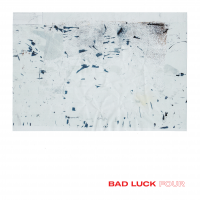
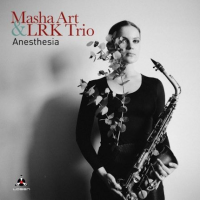

 Buy Now
Buy Now






